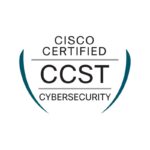The cybersecurity field is booming. Companies are eager for skilled professionals. Nearly 60% of organizations report security talent shortages. This opens up huge opportunities for career changers and newcomers.
Microsoft has introduced their Cybersecurity Analyst Professional Certificate. It’s for complete beginners. No prior experience is needed. The program aims to prepare you for high-paying cybersecurity roles in just six months.
But is it worth your time and money? Let’s dive deep into everything you need to know.
What Exactly Is This Certificate Program?
The Microsoft Cybersecurity Analyst Professional Certificate is a detailed online training program. It’s hosted on Coursera. Microsoft itself created and teaches the content.
The program includes nine individual courses. Each course builds on the previous one. You start with basic computer concepts and end with advanced cybersecurity strategies.
Think of it as a complete cybersecurity education. But condensed into a manageable timeframe. Most students complete it in 6 months studying 10 hours per week.
The program covers everything from network security to cloud protection. You’ll learn about Microsoft’s own tools like Azure and Defender. These are the same tools used by 95% of Fortune 500 companies.
Breaking Down the Nine-Course Journey
Course 1: Introduction to Computers and Operating Systems and Security
This is your starting point. 15 hours of content covering the absolute basics. You’ll learn what makes computers tick. How operating systems work. Basic cybersecurity concepts.
The course now includes an optional introduction to Generative AI. This shows Microsoft is keeping up with current trends.
Course 2: Introduction to Networking and Cloud Computing
25 hours dedicated to networking fundamentals. You’ll set up virtual machines. Learn about cloud services. Understand network infrastructure and monitoring.
Cloud computing is huge in cybersecurity. This course gives you practical skills with real cloud environments.
Course 3: Cybersecurity Threat Vectors and Mitigation
19 hours focusing on cyber threats. You’ll study different types of attacks. Learn about encryption algorithms. Understand risk assessment and compliance requirements.
This course covers the scary stuff. Malware, viruses, worms, Trojans. But more importantly, how to defend against them.
Course 4: Cybersecurity Identity and Access Solutions using Azure AD
23 hours of identity management training. You’ll master Azure Active Directory. Learn about multi-factor authentication. Understand why long passwords matter.
Identity management is critical. Most data breaches happen because of weak access controls.
Course 5: Cybersecurity Solutions and Microsoft Defender
23 hours with Microsoft’s security tools. You’ll work with MS Defender for cloud. Learn about SIEM and SOAR technologies. Understand how to protect against DDoS attacks.
One reviewer said: “My favorite course because it covers Defender and I use Defender in my job right now.”
Course 6: Cybersecurity Tools and Technologies
20 hours of hands-on tool training. You’ll execute penetration testing. Create penetration test plans. Work with security testing tools in cloud environments.
This is where theory meets practice. You’ll actually test security systems.
Course 7: Cybersecurity Management and Compliance
20 hours covering the business side. You’ll learn about data management. Information security standards. Policy formation and implementation.
Compliance isn’t exciting. But it’s essential for any cybersecurity professional.
Course 8: Advanced Cybersecurity Concepts and Capstone Project
21 hours of advanced topics and real-world application. You’ll manage organizational risks. Develop protection strategies. Complete a major capstone project.
The capstone project simulates real cybersecurity scenarios. You’ll create an actual security proposal for a business.
Course 9: Microsoft SC-900 Exam Preparation and Practice
26 hours preparing for certification. You’ll dive into security, compliance, and identity concepts. Mock exams will help you practice. Get ready for the official Microsoft SC-900 exam.
Graduates receive a 50% discount voucher for the SC-900 exam. This certification is highly valued in the industry.
How Much Does It Actually Cost?

The cost varies based on how you access the program.
Coursera Subscription Options
Monthly Plan: $59 per month. If you finish in 6 months, you’ll pay $354 total.
Annual Plan: $399 per year. This is better if you plan to take more courses.
The annual plan saves you $309 compared to monthly payments. It’s a smart choice if you’re committed to finishing.
Alternative Access Points
Some institutions offer the program at different prices. Wesleyan College lists it for $300 total. This might be through partnerships.
Financial Aid Options
Coursera offers financial aid for qualifying students. The application process takes up to 16 days. You need to explain your financial situation and career goals.
One successful applicant wrote: “I am applying for financial aid for this course, aiming to facilitate a significant career switch. Currently facing unemployment, my financial situation is constrained, making this aid critical for accessing educational opportunities.”
What Skills Will You Actually Gain?
The program covers a wide range of cybersecurity skills:
Technical Skills:
- Network Security
- Threat Modeling
- Active Directory Management
- Penetration Testing
- Vulnerability Scanning
- Cloud Computing Security
- MITRE ATT&CK Framework
Business Skills:
- Risk Assessment
- Compliance Management
- Policy Development
- Incident Response Planning
Microsoft-Specific Tools:
- Azure Active Directory
- Microsoft Defender
- Azure Security Center
- PowerShell scripting
The program emphasizes hands-on learning. You won’t just read about cybersecurity. You’ll practice with real tools and scenarios.
Career Prospects and Salary Expectations
The cybersecurity job market is incredibly strong. Over 147,000 cybersecurity job openings list Microsoft certification as desired.
Median salaries exceed $119,000 for cybersecurity roles in the US. Entry-level positions often start around $60,000-$80,000.
Typical Job Titles You Can Target:
- Cybersecurity Analyst
- Security Operations Center (SOC) Analyst
- Threat Intelligence Analyst
- Information Security Specialist
- Cloud Security Analyst
The program prepares you for associate-level positions. These are perfect entry points into cybersecurity careers.
Real Student Experiences and Reviews

The program has strong reviews overall. 4.8 stars with 1,997 reviews on Coursera. Over 103,443 students have already enrolled.
One reviewer noted: “The difference between this and the Google one – the Google one covers Python and some bash scripting. This covers PowerShell.”
Another student appreciated the practical focus: “Through real-world scenarios focused on penetration testing, building configuration, and testing strategy, you get hands-on experience.”
What Students Like:
- Beginner-friendly approach
- Hands-on projects and labs
- Industry-relevant tools and skills
- Microsoft brand recognition
- SC-900 exam preparation included
Common Challenges:
- Time commitment can be demanding
- Some technical concepts require repetition
- Limited programming compared to other programs
The SC-900 Certification Advantage
The program prepares you for the Microsoft SC-900 exam. This is the “Microsoft Security, Compliance, and Identity Fundamentals” certification.
Normal exam cost is around $99. With the 50% discount voucher, you pay approximately $50.
The SC-900 is considered an entry-level certification. But it’s valuable for several reasons:
- Microsoft brand recognition
- Industry-standard knowledge validation
- Foundation for advanced Microsoft certifications
- Employer confidence in your skills
How This Compares to Alternatives
Vs. Traditional College Degrees
Traditional cybersecurity degrees cost $34,320 to $47,400. They take 2-4 years to complete. The Microsoft certificate costs under $400 and takes 6 months.
The value proposition is obvious for career changers.
Vs. Other Professional Certificates
Google Cybersecurity Certificate: Similar price point. Focuses more on Python programming. Less Microsoft-specific.
CompTIA Security+: Exam costs $370. Training adds $2,000-$3,000. More vendor-neutral but requires study materials.
Certified Ethical Hacker (CEH): Around $1,199 for the exam. Plus $2,000-$3,500 for training. More expensive but penetration testing focused.
Vs. Cybersecurity Bootcamps
Cybersecurity bootcamps range from $2,500 to $17,000. They’re intensive but expensive. The Microsoft program offers similar content at a fraction of the cost.
Who Should Consider This Program?
Perfect for complete beginners. No prerequisites required beyond basic computer literacy.
Ideal for career changers. If you’re coming from IT, business, or related fields.
Great for current IT professionals. Helps you specialize in cybersecurity within your current organization.
Suitable for recent graduates. Provides practical skills that complement academic knowledge.
Who Might Want to Look Elsewhere?
Experienced cybersecurity professionals. This is entry-level content. You might need more advanced training.
Developers wanting cybersecurity skills. The Google program might be better with its Python focus.
Those preferring vendor-neutral training. This is Microsoft-focused. CompTIA might be more appropriate.
The Microsoft Advantage
Microsoft is a cybersecurity industry leader. They’re not just teaching theory. They’re sharing real-world expertise from protecting millions of users.
Azure is used by 95% of Fortune 500 companies. Learning Microsoft tools gives you immediately applicable skills.
Microsoft is part of the National Cybersecurity Alliance. This shows their commitment to cybersecurity education and industry standards.
Making the Most of Your Investment
Study Tips for Success:
- Set a consistent schedule. The 10 hours per week recommendation is realistic but requires discipline.
- Practice hands-on exercises thoroughly. The labs are where real learning happens.
- Join study groups or forums. Connect with other students for support and networking.
- Take notes and create summaries. The content builds on itself throughout the nine courses.
After Completion:
- Take the SC-900 exam quickly. Your knowledge is fresh and you have the discount voucher.
- Update your LinkedIn profile immediately. Add the certificate and new skills.
- Start applying for entry-level positions. Don’t wait for perfection.
- Consider additional certifications. Use this as a foundation for CompTIA Security+ or advanced Microsoft certs.
The Bottom Line
The Microsoft Cybersecurity Analyst Professional Certificate offers exceptional value. For under $400, you get extensive training from a leading industry player.
This program won’t instantly turn you into a top cybersecurity expert. Yet, it equips you with foundational skills. Skills that employers are desperately seeking.
The cybersecurity talent shortage isn’t going away. Companies are in dire need of individuals who grasp cloud security, threat analysis, and compliance. This program imparts these critical skills.
If you’re pondering a career shift or looking to enter cybersecurity, this is a low-risk, high-reward choice. The investment is modest compared to the salary gains you could see.
With median cybersecurity salaries over $119,000, the certificate could pay for itself hundreds of times over.
The real question isn’t whether you can afford the program. It’s whether you can afford to miss out on it.
Your cybersecurity career could start today with just a few clicks. The industry is waiting for you. The training is ready. The only thing missing is your decision to start.
























